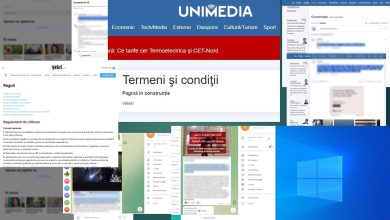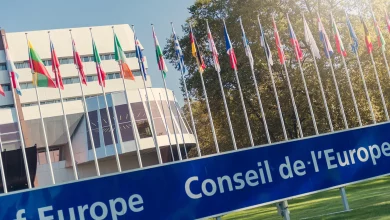IJC Research: What Topics Do People from Vulnerable Groups Search for in the Media?

The topics of interest sought in the media space by vulnerable persons are primarily news and current events from the Republic of Moldova (76%), from around the globe (63%), and current events from the neighboring countries (56%). They are followed by entertainment and general culture materials, as well as practical information. The conclusions are included in the research published by the Independent Journalism Center (IJC) in mid-December.
The authors of the research include persons with disabilities, the Romani, elderly people, and refugees from Ukraine in the category of vulnerable groups. In addition to the four target groups, the research also lists two control groups: the first one consisting of urban and rural women aged 30-59, and the second one represented by urban and rural young people aged 18-29.
Thus, for most refugees, the news and events taking place in Ukraine were main issues of interest (82%). News and events from around the globe ranked second (70%), and news from the locality where they resided ranked third (48%). The refugees were also interested in finding useful information from the media, such as weather forecasts, traffic-related issues, vacancies, and currency exchange rates (47%), whereas news and events from the Republic of Moldova only ranked fifth in terms of importance.
Respondents from Moldova were interested in the information about current events in the country (women – 87%, persons with disabilities – 87%, elderly people – 85%, young people – 75%, the Romani – 70%).
The respondents showed a great or very great interest in the success stories of people from their group, opportunities to spend free time together, employment possibilities, receiving social assistance, information regarding activities of non-governmental organizations supporting them, and information about culture and traditions of the Ukrainians or those of the Romani.
Four other topics – legislation, economic and financial information, science and technology, and sports – are interesting for less than a third of the respondents; it should be noted that, in this case, young people’s interest is somewhat bigger than that of the other analyzed target groups.
Less than half of the respondents are interested in social issues (migration, family, health, mental health, education, etc.). Women (47%), elderly people (43%), persons with disabilities (40%), and refugees (40%) are slightly more interested in such topics.
ACCESS TO LOCAL NEWS IS COMPLICATED
It should be mentioned that, for the analyzed target groups, receiving the news from the localities where they reside is an essential problem. For instance, only 33% of the Romani say that they can easily find such news, compared to 75% of urban young people. In addition, 42% of persons with disabilities can find news from their localities easily, and the remaining 58% find it difficult to access such data.
According to the survey participants, the media is intended for providing relevant information for the population (90%), ensuring the connection between the country’s leadership and society (84%), reflecting reality with all its problems (84%), advertising (70%), and entertaining the audience (59%).
Persons with disabilities consider that the media is supposed to promote the rights of marginalized groups, non-discriminatory policies, and the positive image of this vulnerable category. Young people expect “informational support” on development and education opportunities in the country and abroad, entertainment, and general culture materials from the media. Ukrainian refugees find it important for the media to provide correct information about the events in Ukraine, to publish verified information regarding urgent needs of the refugees arriving in the country, to disprove fake news, and to counter foreign propaganda. The Romani ethnic group cautions against stigmatization of their community in particular media outlets.




